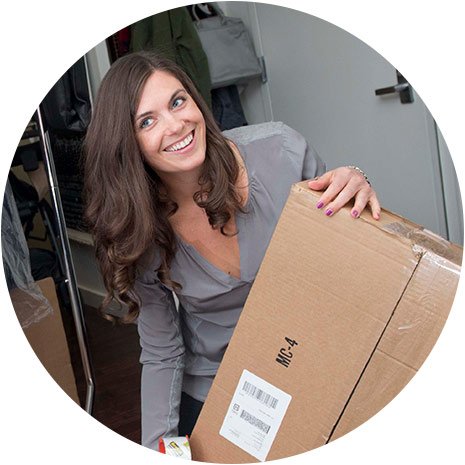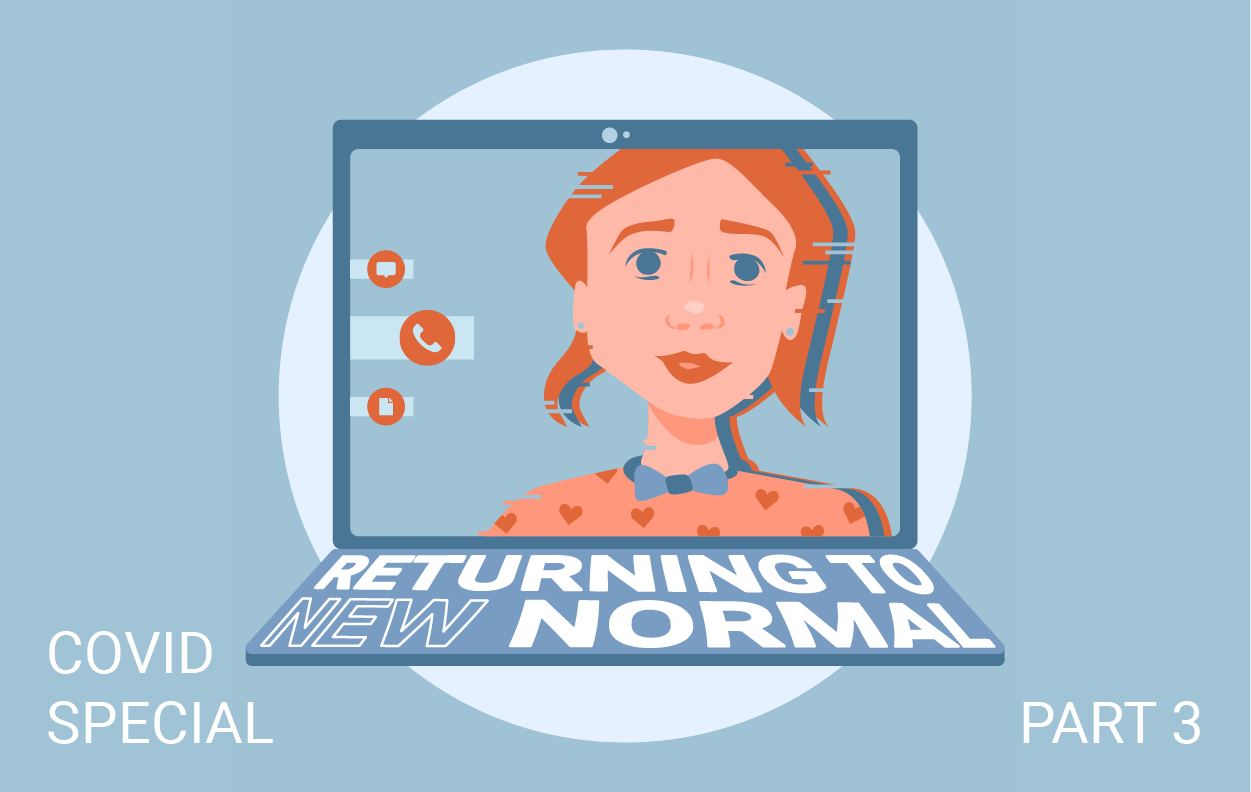
Covid-19 special part I
How are small businesses staying alive?
MAKING IT WORK PODCAST
COVID-19 Special | Part I
How does a small business survive a global health crisis? From changing the company strategy overnight to making difficult decisions on employees, the coronavirus is teaching plenty of hard business lessons.
In this Making It Work special across three new episodes, we check in with four entrepreneurs from our first season to learn how they're coping amid the economic fallout of COVID-19.
Can you pandemic-proof a business? Is it even possible to prepare for hard times while growing?
Listen now
SHOW NOTES
How the COVID-19 pandemic has created a ‘boom or bust’ scenario for small businesses
Few things have had an impact on businesses on a global scale as the pandemic. Every new day brings stories of coronavirus laying waste to people, businesses and entire industry sectors.
And if it’s bringing problems to industry giants, it’s easy to imagine the impact on small businesses… at least, in theory. Because whilst some have struggled for survival, others tell an entirely different story.
All change
“I don't think anyone really saw this coming,” says Diana Ganz, co-founder of wedding attire firm SuitShop (formerly The Groomsman Suit). “I would love to say that I could have been a lot more perceptive of the reality of it coming to the US.” Diana was initially unconcerned, even when her friends (and her investors) raised concerns. “When you're getting married… who's gonna reschedule that? What thing could absolutely rock the world that would just shut things down?”
But can anyone predict and prepare for a pandemic? It’s not easy when you’re on a first-name basis with the breadline, as AnaOno founder Dana Donofree knows. Small businesses such as AnaOno, which makes lingerie for cancer survivors, run on different lines to ‘small businesses’ with 500 people on board. “When you're growing and you're scaling, this is almost the time when your cash is the tightest, because you're in this influx of growth, so you're spending all of your money, constantly just keeping up with your growth.”
Sales of the unexpected
Dana’s sales have stayed steady due to the company being deemed an essential business (“And thankfully, we all need underwear… or maybe arguably don't!”). But other businesses have actually seen their sales go upwards. One of those is Shark Wheel, a manufacturer of square skateboard wheels. “It's like Christmas time,” says founder David Patrick. “So many people are locked inside or at home and they don't have anything to do, so they're buying recreational-type stuff like skateboards, and our sales are off the charts. Our business is up triple, quadruple what it would normally be at this time of year.”
“We were going from an average ticket price of $30-40 per customer to over $125 per customer.”
And Danny Catullo, co-founder of Perishable Shipping Solutions, has seen the same thing. “That first day where people really started panicking and making purchases of food to stock up their freezers and their fridges, it was wild. We were going from an average ticket price of $30-40 per customer to over $125 per customer.”
This year’s (business) model
That’s not unreasonable. After all, people are always going to need to eat. But other businesses have found themselves having to make changes to the way they operate. Diana was right in that people do still want to get married, albeit at a future date – but physical showrooms are off the table for now. “While we had to close all of our showrooms, we quickly pivoted to launch a virtual showroom for our customers, and we've been doing virtual showroom appointments with engaged couples across the country.” The company’s digital native origins have been advantageous here. “Fortunately for us, we're still a small company that can pivot really quickly.”
And innovation has certainly been one of the watchwords of success during the pandemic. “You can't just rest on your laurels and say, Oh, this is what I am and this is what I'm always going to be," says David. “There's an old saying: Pioneers get slaughtered. But that's one of the things that I know has made us successful is we are truly based on innovation.”
The human element
But being and staying successful depends on the customers also being able to pivot quickly – which isn’t always the case. Danny’s found that encouraging customers to buy fresh food online hasn’t been straightforward. “What was happening was there still was a mistrust of buying food online, or people paying too much extra for the convenience of it going to their doorstep.” Aside from the inevitable early adopters, “It really was just a new way of thinking about buying food and it took really this event for people to a), make the purchase and b), learn how easy it is to do it.”
And aside from the customers, there are other people in the equation – namely, staff. And many small businesses have found themselves juggling staffing costs against furloughs and redundancies against keeping the business running. “We didn't lay people off right away. We held strong, because being online, there's still a lot of work to be done,” says Diana. And then the stimulus program was announced with “…an offering for a paycheck protection program. It's still very up in the air how that is going to get dispersed.”
The entrepreneurs






Dana Donofree






Danny Catullo






Diana Ganz






David Patrick
The deep-pockets state
The government assistance programs haven’t been the panacea that they promised to be, as Dana found. She felt that the media had done a good job in positioning the opportunities that the government appeared to be giving to small businesses. “But as a small business owner, you can't help but feel like they are a bit misguided. I have applied for every loan that has been published and pushed out by the government, and they are closing within 24 to 48 hours because they're reaching the caps of the people that are applying for them. It's frustrating to know that the money's there, but it's almost like winning a lottery.”
Diana also applied to every fund, loan and grant on the day that they were released. “I have not heard from them. There's been no word. It was a very frustrating application process. The website kept breaking.” Danny echoes Diana’s frustration. “The government needs to help out so that we can get back on our feet and be able to continue doing what makes America so special and unique: having so many small businesses really drive the economy.”
Coping with success
For entrepreneurs like Danny, it doesn't necessarily make things easier if your business is thriving either. “It's wearing on me. I've been an entrepreneur for a long time and I have many friends and colleagues that are owning a small business or working for startups, and I see many of them struggling financially with their businesses, some that are closing down. And to experience such a successful run while your close friends and family members are not – it's definitely difficult.
“You can't share in that same celebration that you normally would if the economy was going well and everybody was experiencing the same sort of success that I was.”
It’s a position that David can empathize with. “It's kind of like having survivor guilt. You're the one guy that made it when everybody else didn't.” He’s doing what he can to help out fellow entrepreneurs but even so, businesses are going under on a daily basis. “They're absolutely devastated. We've got people that have just 100% shut their doors, facing losing their homes, facing losing their futures, like, everything that they had banked on died overnight and that is so difficult to hear.”
Learning from failure
“Did the strong survive?” he muses. “No. The ones that are survivors survived. I think the other ones were going to get wiped out by any sort of thing that was going to happen. There was probably five or six different economic things that would have wiped them out.”
If that sounds Darwinian, David would be the first to agree. But he reminds us that there are other lenses to view the situation through. “Failure is a lesson, you know? Hindsight is 20/20, but hindsight gives you foresight. This is a lesson to learn from where, okay, this kind of stuff can happen. So, what are you going to do to make sure it doesn't happen to you again? What are you going to change about your system or your product or your people that is going to make it where this isn't going to be a second failure?
“That's what this is. It's a massive sink or swim learning lesson and hopefully, everybody that's an entrepreneur knows there isn't a straight line up to success. It's a jaggedy, veering, crazy line to success – and this is part of that line.”
Listen to the episode
More episodes



Covid-19 special part II: How do you run
a business during lockdown?
As the world begins to face the reality of a post-pandemic existence, small business owners are still working out how to operate safely. So how do you run a company under the constraints of coronavirus? And will things ever go back to how they were?



Covid-19 special part III: How are
things four months on?
In the third episode we never planned to make, we check in on the four entrepreneurs to see how they're weathering the COVID-19 storm. Have any temporary measures brought about lasting changes? And will it be enough to save their businesses?